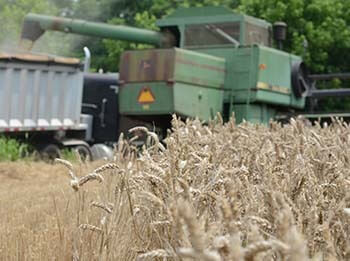Increase your wheat crop’s yield potential with seed treatments
Oct 14, 2019

It has been said that 70 percent of a wheat crop’s yield potential has already been determined as soon as the seed is in the ground. Why not give yourself a little extra insurance before planting with a seed treatment? Treating the seed can create an environment that promotes good germination, uniform emergence, and strong stand establishment during one of the most critical phases in the wheat growing season.
Treatments can contain seed fungicides, seed insecticides, and growth regulators. Seed fungicides protect against seed- and soil-borne diseases and early season damping off. Seed insecticides ward off yield-limiting pests that can threaten early season vigor and plant health. Growth regulators like Ascend can increase seedling root and shoot development which, in later planting windows, can be extremely beneficial.
Contact your local Co-op agronomy staff for more information. These experts are eager to help you develop the right wheat seed treatment strategy for your farm this fall!
Treatments can contain seed fungicides, seed insecticides, and growth regulators. Seed fungicides protect against seed- and soil-borne diseases and early season damping off. Seed insecticides ward off yield-limiting pests that can threaten early season vigor and plant health. Growth regulators like Ascend can increase seedling root and shoot development which, in later planting windows, can be extremely beneficial.
Contact your local Co-op agronomy staff for more information. These experts are eager to help you develop the right wheat seed treatment strategy for your farm this fall!